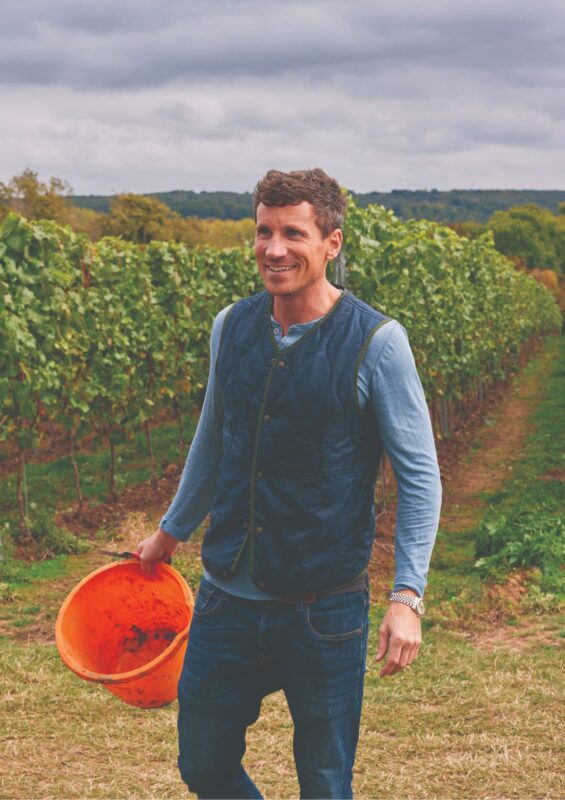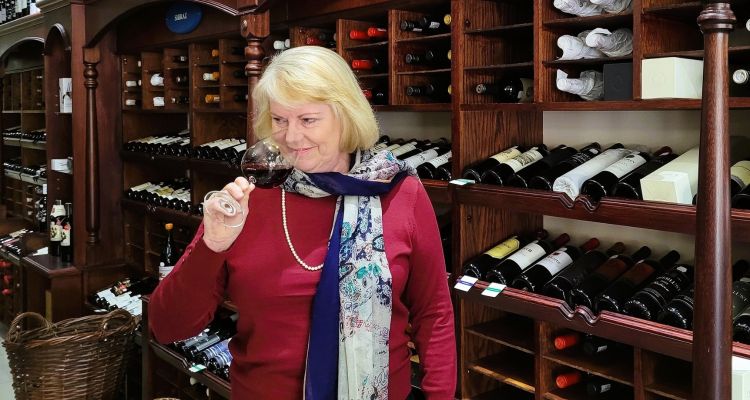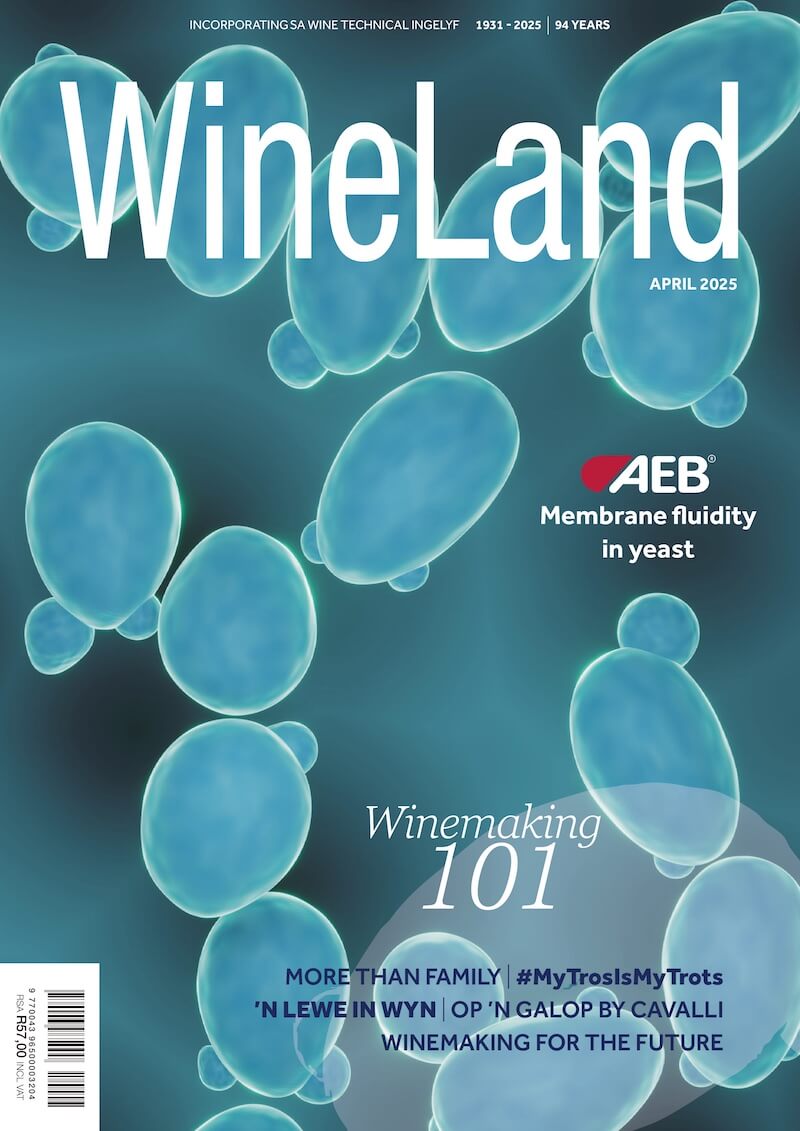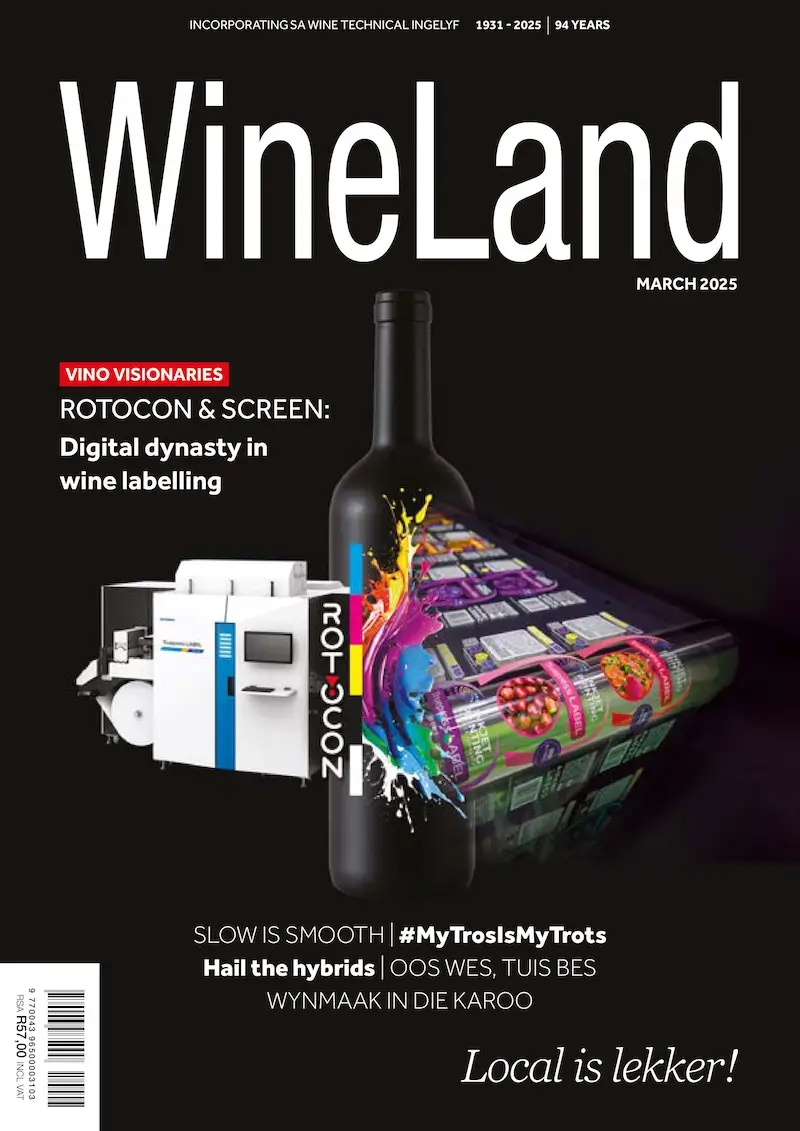The Uncommon was born from a simple question: Why do English wines follow the crowd? Instead of copying tradition, The Uncommon’s founders reimagined wine with sustainability at the core to offer a fresh, modern and convenient single-serve canned wine.
Henry Connell, the cofounder of The Uncommon, had been toying with the idea of launching a canned wine after spending a decade in America, where he’d witnessed its success. “It felt like we were onto something,” he says. “Why not produce a high-quality local wine in this innovative, sustainable format?” While it had never been done in the UK before, he recognised that the market had open-minded consumers, so he decided to pursue the idea.
In 2018, The Uncommon became the UK’s first producer to sell canned wine. Since then, the focus has been on constant improvement.
A new approach
“We set out to make something really eye-catching and different to what existed in the market,” Henry says. Every detail – from the illustrated characters to the textured labels – was purposefully designed. “Stay unconventional, be uncompromising on quality and always keep it playful,” he says.
The same philosophy applies to the wine itself. Only the finest handpicked grapes from its vineyard on the North Kent Downs is used to make The Uncommon. The vineyard has Red Tractor assurance, which means it’s certified to meet high standards when it comes to ethical, sustainable and traceable farming practices. It’s also part of the Environmental Land Management (ELM) scheme. “This means we’re held to top-tier standards to preserve the natural landscape, ensure soil health and minimise pesticide use,” Henry says.

Henry Connell, cofounder of The Uncommon
He describes grape farming as a monoculture. They’ve planted wildflowers, cultivated cover crops between the vines and placed beehives nearby to improve the ecosystem. The result? A thriving meadow, better soil health and boosted biodiversity, including the discovery of a rare orchid that appeared in the mix. The Uncommon’s new organic fertiliser nourishes the entire soil ecosystem, improving long-term vine health and reducing the need for chemicals.
Earth approved
Sustainability isn’t just a trend, it’s a Gen Z expectation. Gen Z expects brands to do better for the planet and people, Henry says. That means more biodiversity practices, recyclable packaging and transparent sourcing. Fortunately for The Uncommon, its core principle is sustainability. “We started The Uncommon with one goal: to make beautiful English wine with the lowest possible impact,” Henry says. He and his team took a fresh look at the industry and asked why they stuck to traditional packaging when aluminium cans are lighter than traditional wine bottles, endlessly recyclable and keep wine fresher.
To further reduce The Uncommon’s environmental impact, it relocated the winemaking operation to just 16 km down the road from Faversham in Kent, reducing transportation costs. The Uncommon’s winery was one of the first wines to receive Sustainable Wines of Great Britain (SWGB) accreditation. It operates on renewable energy sourced from solar panels on the roof and focuses on waste reduction. Last year, it achieved a 40% reduction in water usage during harvest by implementing pressure washers, installing sloping floors, using fewer picking crates, and thus using less water to clean them.
Grape waste is also recycled by sending grape marc – comprising skins, pulp, seeds and stems left after pressing – to a local farmer for composting.
Henry and his team recently analysed their carbon footprint numbers and found their wine has over 50% lower emissions than the next-best canned wine in the UK and a mind-boggling 86% less than bottled wine. “This is helping several large UK businesses on their path to net zero as we also move in the same direction,” Henry says. Switching from glass bottles to aluminium cans cuts 2.72 kg CO2 per litre of wine. That’s equal to two tonnes of CO2 saved for every 1 000 bottles.
Connecting with modern culture
The Uncommon doesn’t put people into generational boxes, it focuses more on affinity. “Our audience cares about quality over quantity, values sustainability and appreciates a fresh take on wine,” Henry says. That said, it embraces cultural shifts that resonate with younger consumers, such as transparency, authenticity and irreverence in how we communicate.
Gen Z is doing what they do best: making wine culture more inclusive, sustainable and fun. “They’re not bogged down by old-school rules about what to drink and how to drink it. Instead, they’re exploring, questioning and choosing wines that align with their values,” Henry says.
While bottles will always have their place, cans present a real opportunity to engage a younger audience and those who want to drink less but better. They offer convenience, smaller serves and sustainability in ways traditional packaging simply can’t, making high-quality English wine more accessible.
What’s next
The Uncommon aims to become more than carbon neutral by becoming a force for good. Step one is figuring out exactly where it stands. “Over the next three years, we’ll expand our emissions measurements to cover scope 1, 2 and 3,” Henry says.
He further explains that once they get the full picture, they’ll set new targets, and craft and get board approval for a Climate Transition Plan. Meanwhile, they’ll keep finding ways to farm regeneratively and ditch plastic tape. By focusing on net zero, The Uncommon is tackling the basic issues to reduce its emissions and ensure the business is as green as it gets. “Once we hit that goal, we’ll be in an even stronger position to help the wider world,” he says.
People are drinking more mindfully, whether that means choosing lower-alcohol options, natural wines or products that are good for the environment or just wanting something that’s a bit uncommon.













